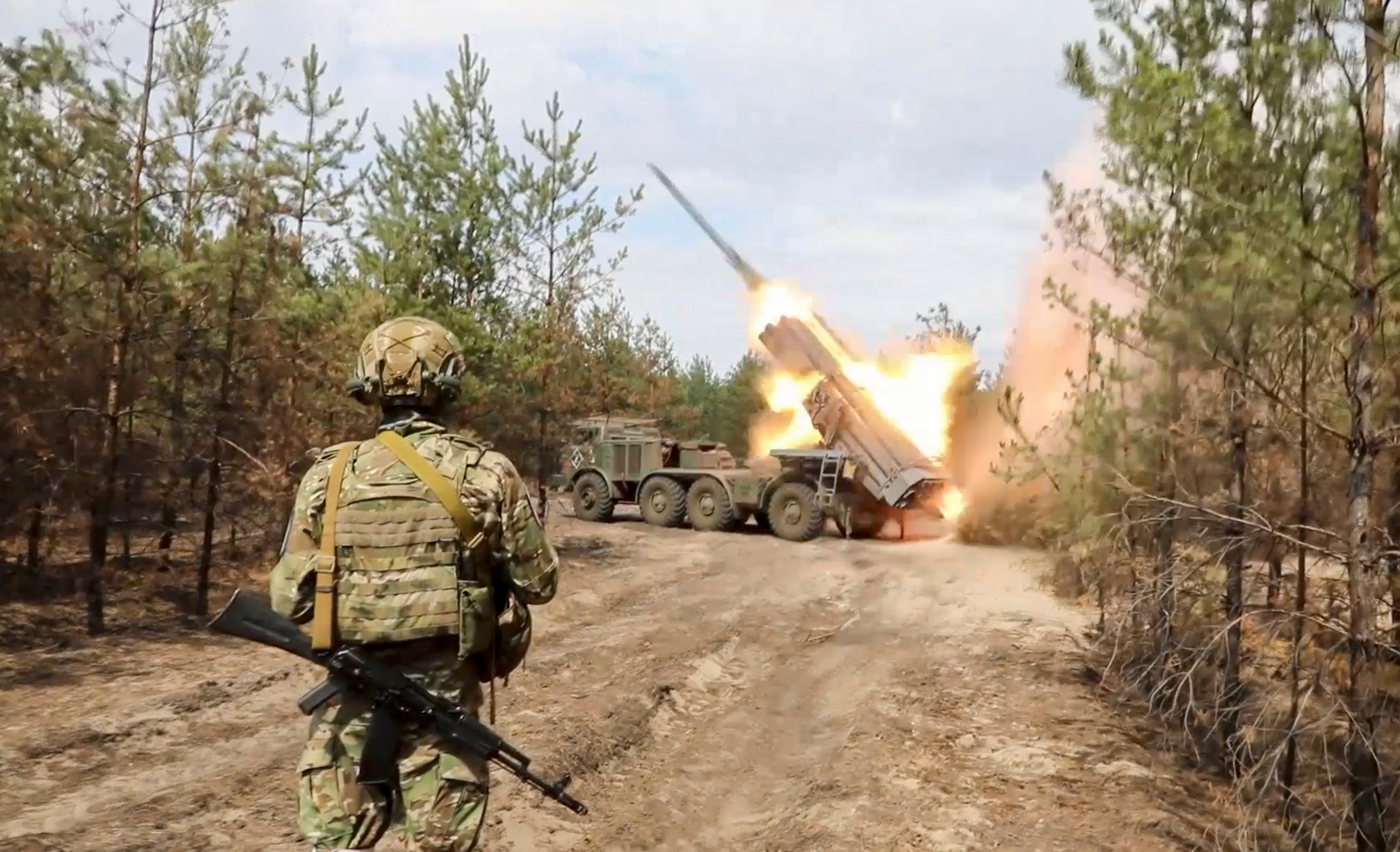Biden suggests US could soon allow Ukraine to use long-range missiles to target deep inside Russia
The move would free up UK-made Storm Shadows to be used – with David Lammy and Antony Blinken in Kyiv to discuss the issue with Volodymyr Zelensky
Your support helps us to tell the story
From reproductive rights to climate change to Big Tech, The Independent is on the ground when the story is developing. Whether it's investigating the financials of Elon Musk's pro-Trump PAC or producing our latest documentary, 'The A Word', which shines a light on the American women fighting for reproductive rights, we know how important it is to parse out the facts from the messaging.
At such a critical moment in US history, we need reporters on the ground. Your donation allows us to keep sending journalists to speak to both sides of the story.
The Independent is trusted by Americans across the entire political spectrum. And unlike many other quality news outlets, we choose not to lock Americans out of our reporting and analysis with paywalls. We believe quality journalism should be available to everyone, paid for by those who can afford it.
Your support makes all the difference.Joe Biden appears poised to lift restrictions on Ukraine’s use of long-range missiles deep inside of Russia, including UK-made missiles, in a pivotal moment for the war in Ukraine.
Britain has supplied Ukraine with Storm Shadow missiles, which have a range of about 155 miles, three times the range of the missiles Ukraine has used up to now, but it cannot use them to fire at key targets inside Russia. While the UK – and France, which also uses a variant of Storm Shadows – are said to be supportive of using such missiles deep inside Russia, Kyiv is said to be waiting for permission from Washington, given US systems are key to the launch and targeting of long-range missiles.
The US, which has provided Ukraine with the longest-range version of ATACMS, a ballistic missile that can travel 190 miles, has remained hesitant for the firing of long-range missiles into Russia over fears of a reaction from Moscow that could escalate the conflict. They are believed to be particularly concerned that Russia could respond by deploying nuclear weapons.
David Lammy, the British foreign secretary, and his US counterpart Anthony Blinken are arriving in Kyiv on Wednesday to discuss the potential to lift these restrictions with Ukrainian president Volodymyr Zelensky.
When asked about the possibility of long-range missiles being used inside Russia, Mr Biden said late on Tuesday that hat his administration was “working that out now”.
"I think it’s a critical moment for Ukraine in the midst of what is an intense fall fighting season with Russia continuing to escalate its aggression," Mr Blinken said at a news conference with Mr Lammy in London before travelling to Kyiv.
Mr Biden is also likely to discuss Ukraine’s use of missiles with prime minister Keir Starmer when they meet in Washington on Friday.
Reacting to the news that the US could lift the restrictions, Vyacheslav Volodin, the speaker of Russia’s Duma, the lower house of parliament, accused Washington and the UK of “becoming parties to the war in Ukraine”.

Mr Zelensky has repeatedly urged the West to supply more long-range missiles and lift restrictions on using them to hit targets inside Russian territory.
British government sources have been quoted as suggesting the US position of hesitancy is now shifting. CIA chief Bill Burns also hinted at a shift in Washington’s thinking during a visit to London last Saturday. Such permission from the US would be a big shift in Kyiv’s capabilities.
Mr Blinken and Mr Lammy are visiting Kyiv a day after Russia reportedly received a shipment of 200 ballistic missiles from Iran.
The US and UK have denounced the move and unveiled new sanctions against Iran, including a ban on Iran Air passenger flights from British airspace.
“This development and the growing cooperation between Russia and Iran threatens European security and demonstrates how Iran’s destabilising influence reaches far beyond the Middle East,” the secretary of state declared.
The deepening military cooperation between Iran and Russia is a threat for all of Europe, Blinken said, and added that Washington had privately warned Iran that providing ballistic missiles to Russia would be "a dramatic escalation." The US issued sanctions on Iran late on Tuesday over the transfer.
He declined to confirm whether Washington will allow Ukraine to use long-range weapons inside Russia but said such a decision is informed by multiple factors.
"It’s not just the system itself that counts. You have to ask: can the Ukrainians effectively use it, and sometimes that requires significant training, which we’ve done. Do they have the ability to maintain it?" Mr Blinken said.
After Mr Blinken announced the new sanctions against Iran, Andriy Yermak, Mr Zelensky’s chief of staff, praised the “positive step” but added: “We also need authorization to use Western weapons against military targets on Russian territory, the provision of longer-range missiles, and the enhancement of our air defense systems.”

Join our commenting forum
Join thought-provoking conversations, follow other Independent readers and see their replies
Comments